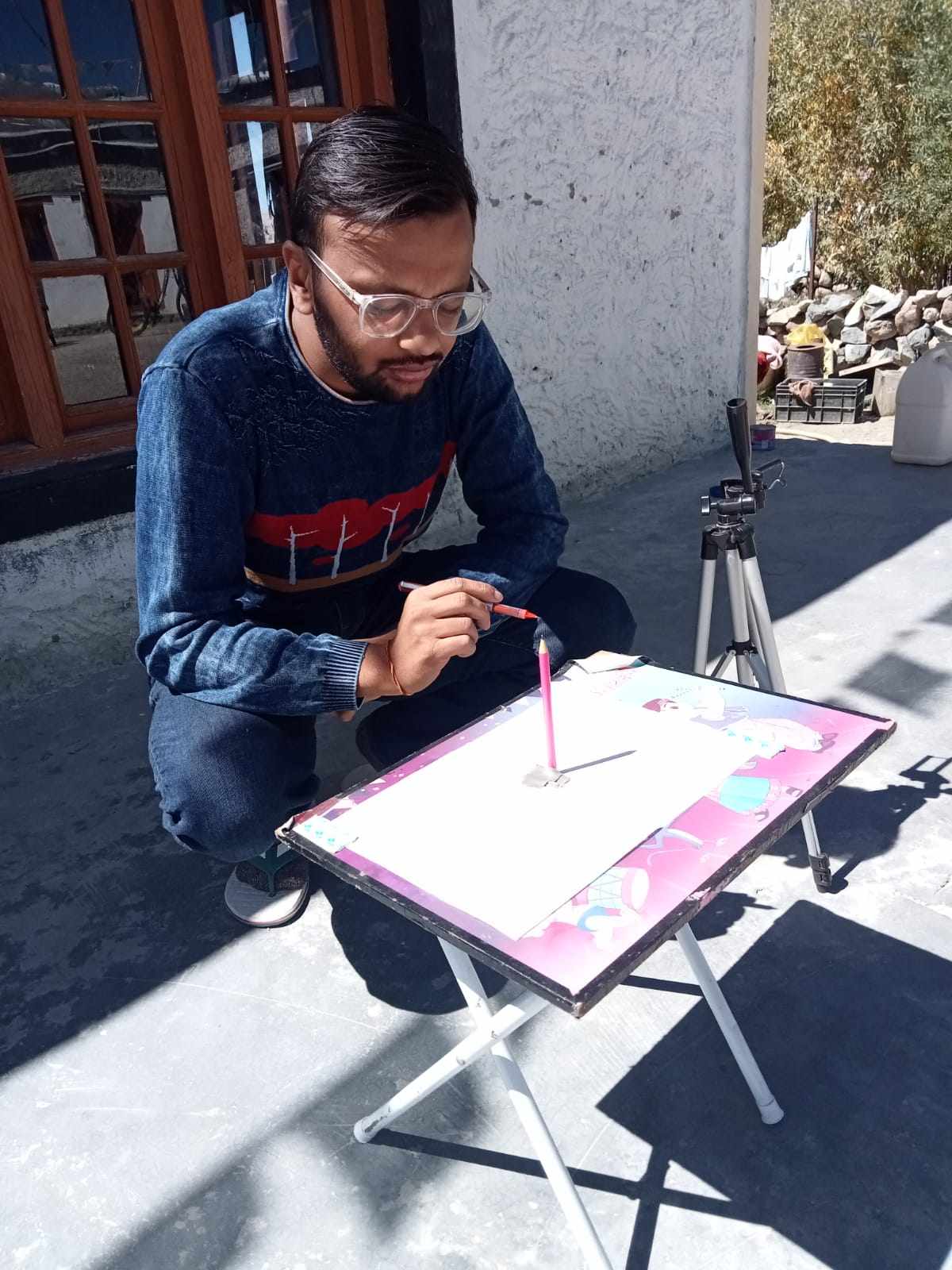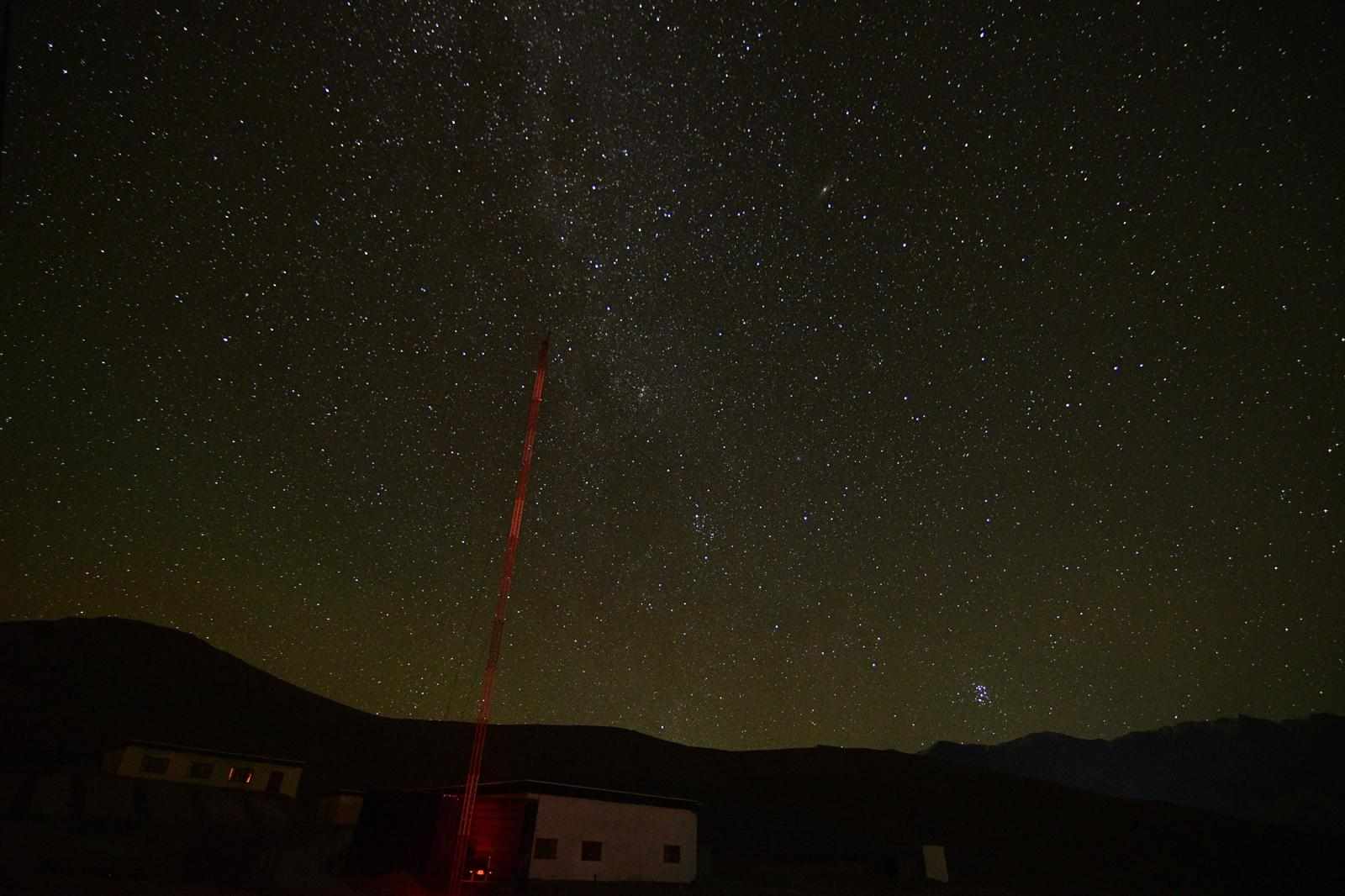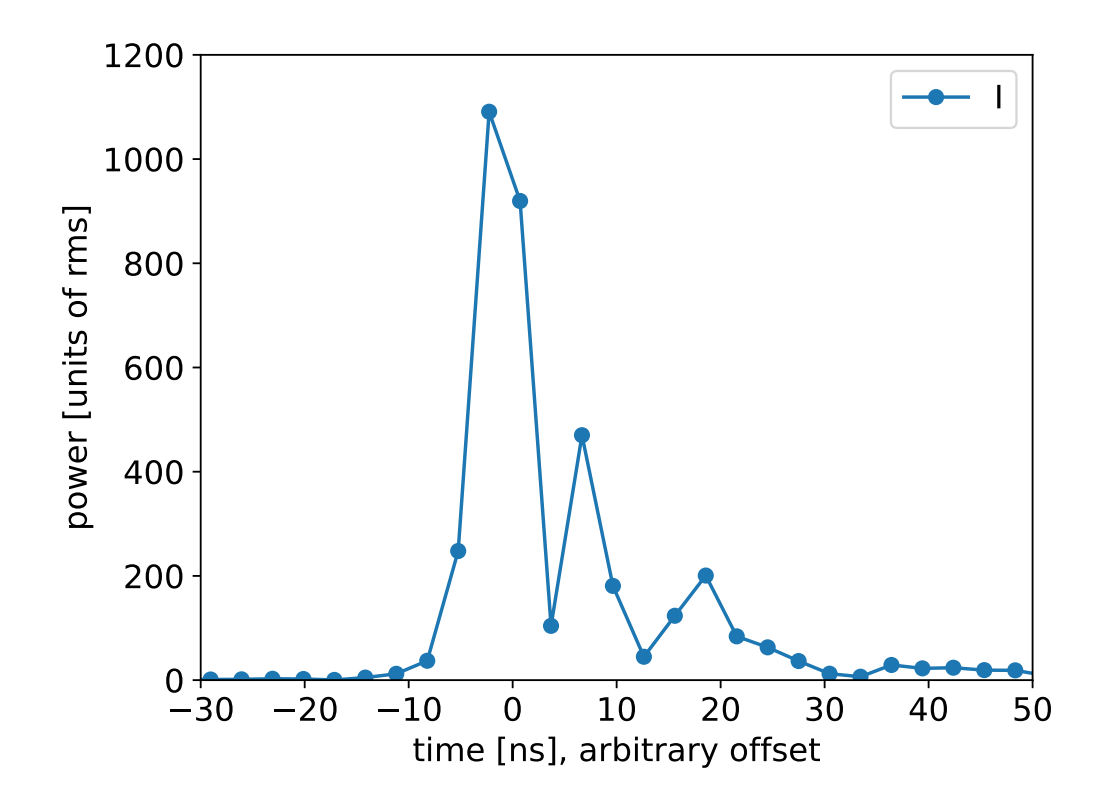Oct 8 2024
After a break to do some travelling, I'm back and ready to resume sending my writing to you. (Not a threat!)
First, a long piece, Next door to God, that I will send you in two instalments. Instalment #1 is below. It's about a neighbour, is all I will say.
Both instalments are free. But as I've indicated before, I will start charging for (some of) my writing. So I urge those of you willing to support me (and who indicated as much in my earlier attempt with Substack) to click on the Support button at the bottom of this message. I think this is easier for everyone than another option Stck.me gives me, to charge for individual articles.
I appreciate your support very much. And please let me have any thoughts on my articles. It's what keeps me going!
---
Next door to God
(Instalment #1)
When the cop approached Suchismitaa (“yes, with two ‘a’s”, she told me) just past midnight, she was startled and more than a little outraged.
The street was littered with scraps of paper, evidence of the ear-shattering sequence of fireworks that had torn the night apart only minutes earlier. The sound had so terrified our slumbering cat, Aziz, that he skedaddled across the room and stood there trembling. Our slumbering daughter, in her bed by the window overlooking the street, woke up whimpering and clung tight to her mother who rushed in to check on her. And when I stumbled to the balcony, sleepy and cursing, I didn’t see Suchismitaa, but I did see the perpetrators. Two overweight men in too-tight tees, they climbed on a particularly noisy Royal Enfield Bullet motorbike and disappeared into the night.
Suchismitaa was the only one left there, so naturally the cop who turned up ten minutes later buttonholed her. “We got a call in the control room,” he said. “Noisy fireworks here,” he said. She nodded. After all, they had nearly deafened her. “It was you, wasn’t it?” he asked, and that got her back up. “Hey,” she told me she said, “can’t you see these flowers I have in my hand? Why would I set off fireworks? In fact, how could I set them off?” Waving her flowers at him, she was eventually able to persuade him of her innocence. She told me all this nearly seven hours later, standing there across from a certain man’s home; she would stand there nearly another six hours. “That’s right,” she repeated for my benefit. “Why would I disturb everyone and set off bombs? I’m carrying these flowers” — by then, they looked a little worn — “to give Sachin for his birthday, am I not?”
Why indeed.
That’s “Sachin” as in "Tendulkar", cricket superstar. He lives opposite my home and April 24 is his birthday. Every year on that day, dozens of fans like Suchismitaa turn up with gifts and posters, cards and cakes, flowers and cricket bats, and wait on the road, sometimes for hours, to wish him. One year on that day, as I was walking homeward through the crowd, a paunchy man in a red shirt climbed into a tree to rig up a large Sachin poster. When he broke off several branches too, I protested. He climbed down and rounded on me, sweating, his face a mask of righteous fury. “At least I’m working for the poor!” he said, poking me in the chest with a long finger. “What are YOU doing?”
The passion, if sometimes inexplicable, that Sachin arouses.
But on this day that began, for Suchismitaa, with an accusation from a cop, it was well past noon and fiercely hot when somebody slid the big black gates of Sachin's home open. Just inside, some of the staff hurriedly pushed yellow traffic barriers into position to keep the hordes from swarming in. Half an hour later, Sachin — fit and resplendent in dark trousers and an elegant purple pinstriped shirt flecked with flowers — appeared. The waiting crowd turned into a screaming, roiling mass of clamouring arms and churning feet, cellphones held aloft with most faces actually turned away from him to satisfy the arcane protocol of the selfie. He walked around the periphery, shaking hands, signing proffered things, posing for more selfies.
And somewhere in that quivering mass, with some small projection of a yellow barricade biting into her belly — as she later explained — was Suchismitaa with the two “a”s. She had been waiting for this moment for many hours.
Though really, many years.
***
Are there Indians who have not heard of Sachin Tendulkar? I suppose there must be some, though I wouldn’t know how to go looking for them. Apart, that is, from trawling through lists of infants born after he retired from the game in 2013, after a career that lasted nearly a quarter-century.
In those years, he scored thousands of runs and broke all manner of batting records. Take Test cricket alone — the five-day matches played between countries. Sachin has the most games, the most runs and the most centuries in history. He is the first to several run milestones — 15,000 runs, for example — and the fastest to some others. He scored, and heavily, against a long line of illustrious bowlers around the cricket world: Waqar Younis, Wasim Akram, Shane Warne, Brett Lee, Curtly Ambrose, Courtney Walsh, Muttaiah Muralitharan, Chaminda Vaas, Daniel Vettori, James Anderson, Steve Harmison, Allan Donald and Shaun Pollock. Then there is the shorter version of the game and his feats there: the most one-day matches and centuries, the first to score a double-century and plenty more.
Really, Sachin’s records would fill many pages. Remarkable, no doubt. But his greatest legacy might be that for 24 years, he captured a country’s imagination like nobody before or since. We’ve had our cricket stars in India — Vijay Hazare, Sunil Gavaskar, GR Vishwanath, Virender Sehwag, MS Dhoni, Anil Kumble and Rahul Dravid were all world-class players, as are more contemporary phenoms like Virat Kohli, Jasprit Bumrah and Yashasvi Jaiswal. (And this is just the men. India has produced plenty of stellar women cricketers too.)
All those names were greatly respected wherever and whenever they put on their cricket gear and strolled out to play. There are even credible arguments you can make, for some of those men, that they were by some measures greater cricketers than Sachin was. Fodder for endless cricket arguments, of course.
But none of them managed what Sachin, if unwittingly, did: a connection to a nation’s very soul. And this is the man who, in September 2011, moved into a home he built opposite mine.
***
And like always with Sachin, there’s a story there. Opposite the building where I live in a leafy Bombay suburb, there was once an old bungalow: squat ground-plus-one, mosaic terrace, dull grey-brown exterior somewhat the worse for years of monsoon wear. All we knew about it was that someone who worked for Air India lived there, because every few days a car would stop outside and he’d emerge from the structure in a crisp AI uniform.
Sometime in late 2007, we heard whispers that the property had been sold to a major name in cricket. Months later, a team of wiry labourers arrived and began hacking at the structure with long hammers and crowbars, laying waste first of all to the mosaic terrace and then to everything below. When there was nothing left of the bungalow, heavy equipment lumbered in for some serious digging, going what seemed at least two or three storeys deep. Soon after, all of us who lived in buildings nearby found a letter in our mailboxes. Signed by Sachin, it said:
“My dear Neighbours,
“You must be aware that I have purchased a plot [here], and the piling work for the construction of my house has already started. I was there at the site when the work commenced and I am aware of the noise generated by the machine. I want to reassure you that I will make sure that the work is done in a manner causing least inconvenience to all. Your co-operation is appreciated and I look forward to moving into the neighbourhood soon.”
Despite the letter, for the next couple of years the construction often was a maddening disturbance. The “noise generated by the machine” was deafening, especially when it erupted in the middle of hot afternoons, or late at night. Protesting to the men in charge helped not at all; they’d make perfunctory apologies and next day, the same. Once when it was happening nearing midnight, I went down and crossed the street, only for a man there to tell me even before I opened my mouth: "Can't help it. We started late today."
My regular complaints actually turned the foreman, slender bearded Iqbal, into something of a friend. I invited him up one evening for a drink. We had a very nice time. We couldn’t hear each other talk. I think he got the point.
One morning, we saw a large blue SUV outside. Had to be the legend himself, visiting the site. Iqbal confirmed this, but told us Sachin would be busy in a meeting for a couple of hours. Determined to tell him about the noise, my wife and I brought down chairs, her French papers to be corrected and my laptop. We sat there on the road for two hours, working and waiting. I think Iqbal got the point again.
We met Sachin finally that morning. He was all grace and asked Iqbal to ensure there was no repeat of the noise. Indeed: for the several more months of construction, there was none.
And in September 2011, Sachin moved in. Much commotion on the street, fans handing out sweets, TV people sticking microphones into nearly any passing face to ask what it felt like to have Sachin for a neighbour. From that day forward, his home became a regular stop on the regular Mumbai Darshan tours that wind through the city, visitors from Vijayawada and Varanasi leaning from bus windows to catch glimpses of the great man’s grey edifice.
Also from that day forward, fans began spending time on our street, waiting for Sachin — peering up at His home, peering hopefully at His gate, pleading with His stoic security guards for any information about Him. I capitalize advisedly, because to plenty of these fans, Sachin is God. I mean that in all seriousness. They wear shirts that say so. They write Facebook posts affirming it. They tell me as much when I stop to talk, which I do out of solidarity because after all I, too, once waited on the road for Sachin.
One morning, it was a young man I’ll call Karan. For four days, I had seen him hanging around — sometimes sitting on the edge of the flower-bed, sometimes standing, sometimes wandering off and returning with a packet of biscuits. What was he doing here? What about baths, toilet breaks? What was he doing for food — real food, not biscuits? I finally had to ask.
“I’m just sitting here,” Karan said tersely. “I just want to meet Him. It will help me.”
Another day passed and I couldn’t take it any more. I invited Karan up like I had Iqbal before. He asked for a glass of water and suddenly began weeping, weeping. A seemingly boilerplate sob story followed: he had been working in the city for several months, but didn’t really like it here. His father called him home to Gorakhpur for his sister’s wedding, and Karan decided this was his chance to break with Bombay. Withdrew his savings from the bank, two lakh rupees (he said). Packed the cash and his belongings in a suitcase. Went to the Lokmanya Tilak Terminus in suburban Kurla to catch the train home. Waiting for it on the platform, he fell asleep. When he woke, the suitcase was gone. So were his savings.
“Yeah, right!” I wanted to say. “And I should believe that tale, pal?”
And yet, and yet … I didn’t say it, because somehow, something about this man and his sob story rang true. After all, it was me who had approached him on the street, and after several days. I never saw him importuning anyone. Even after we began speaking, and even now through his tears, he didn’t ask me for any money, any help.
“But why do you want to meet Sachin?” I asked. “Think he’ll give you some money?”
Karan was startled and reproachful. “Oh no! I just thought meeting Him would give me the strength to face my father.”
***
(Watch this space for Instalment #2!)
















Write a comment ...